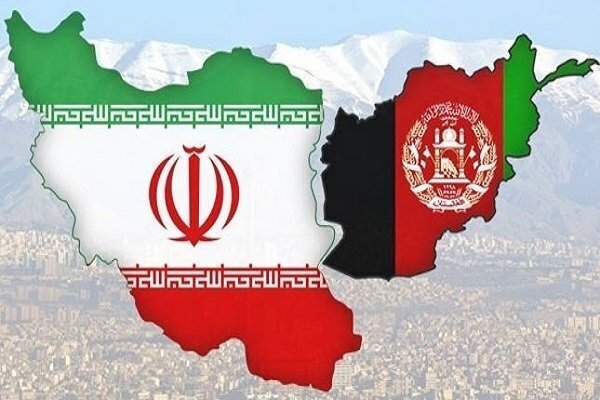Iran, Afghanistan join hands to broaden all-out ties

TEHRAN – Having shared historical, cultural, political, and economic backgrounds, Iran and Afghanistan have been allies for many years and the strategic cooperation between the two countries has been broadened especially over the past two decades.
Since the removal of Taliban from power in 2001, the two governments started to work on new strategies to establish constructive ties for helping the war-torn country get back on its feet and build a self-reliant economy.
Over the past two decades, Iran and Afghanistan have held numerous rounds of joint economic committee meetings during which officials from the two sides have traveled to the two countries to facilitate the expansion of ties, and also a great number of trade and political delegations have been exchanged between the two sides.
The two neighbors are currently cooperating in a variety of important areas including energy exchanges, joint ventures in water and related industries, environmental issues, railways, infrastructure, customs, transit and etc.
As one of the latest official visits, in late July 2019, the Iranian Minister of Energy, who heads the Iran-Afghanistan Joint Economic Committee, visited Kabul to hold talks with senior Afghan officials in order to discuss the expansion of economic ties.
During his one-day visit, Reza Ardakanian met with the Afghan President Ashraf Ghani, the country’s Chief Executive Abdullah Abdullah and the Afghan minister of water and energy as well as the country’s finance minister.
In October, Chairman of Afghan Peace Council Abdullah Abdullah visited Tehran, during which he met with Ardakanian and called for the expansion of trade ties.
In the meeting, Ardakanian referred to the agreements reached between the two sides during his visit to Afghanistan last year and said: "During that visit, President Ghani issued the necessary orders to implement electricity projects, including renewables, solving banking problems, etc., but unfortunately so far no definite measure has been taken to realize those agreements.”
Since the outbreak of the coronavirus, the official talks between the two sides are taking place mostly through videoconference and in this regard several virtual meetings have been held in order to follow up on the previously reached agreements and to discuss new strategies and programs to alleviate the negative impacts of the coronavirus pandemic on the economic relations between the two sides.
On Monday evening, Ardakanian held talks with Afghanistan’s Deputy Foreign Minister Mirwais Naab, and also Mohammad Esa Qudrat, the country’s deputy finance minister for customs and revenue.
During the online meetings, the officials discussed holding the two countries’ Joint Economic Committee meeting.
The two sides also exchanged views on pursuing projects in the field of renewable energy and building wind farms on the border between the two countries and discussed signing an agreement to start the implementation of these projects.
Customs, transit, banking, and cooperation in free zones were also among the areas of mutual interest for cooperation between Iran and Afghanistan.
In late September, Head of the Islamic Republic of Iran Customs Administration (IRICA) Mehdi Mirashrafi said that Iran and Afghanistan have put facilitating trade and customs relations on the agenda.
“Facilitating trade, exchanging customs information, solving border problems and developing transit are on the agenda of Iran and Afghanistan,” he said after a video conference meeting with his Afghan counterpart.
Following his meeting with the Afghan official, Mirasharfi said: “The two sides decided to prepare a comprehensive strategic economic document, considering the determinations of the two countries for strategic cooperation.”
The Head of the United Nations Assistance Mission in Afghanistan (UNAMA) Deborah Lyons also visited Iran earlier this month and held a meeting with Ardakanian to discuss the expansion of cooperation between the two sides.
The officials discussed issues regarding the economic cooperation between Iran and Afghanistan and the role of this international organization in facilitating this cooperation.
Also in early October, Ardakanian held talks with Afghan Acting Foreign Minister Mohammad Haneef Atmar through video conference in which the two sides discussed issues regarding the holding of the two countries’ Joint Economic Committee meeting.
In this online meeting, the ministers agreed to prepare their proposals on a range of important issues in bilateral relations, including the application of preferential tariffs on commodity items desired by the Afghan side and the issues pertaining to the border markets as well as customs cooperation.
EF/MA
